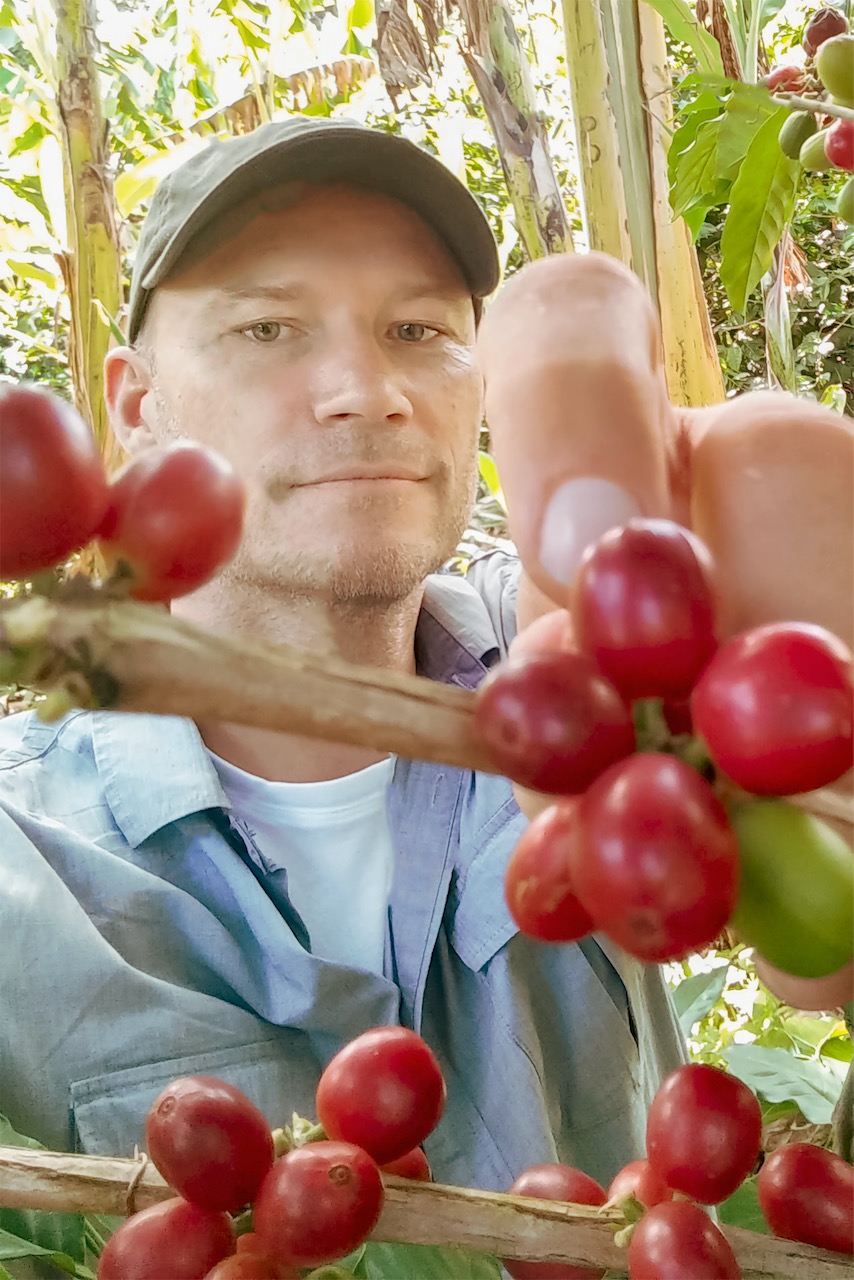
The quest that was carried on by fate
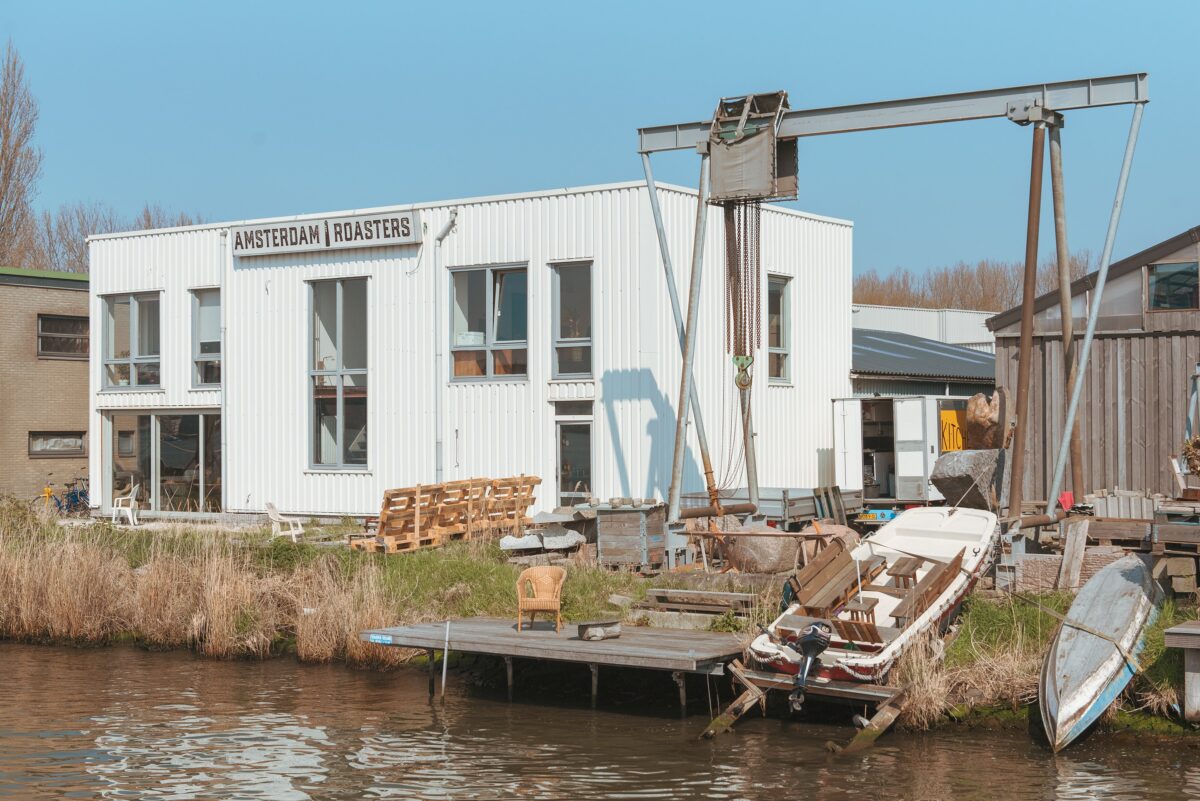
In the Netherlands, I often meet outstanding specialty coffee entrepreneurs who are similar in age to me. Many of these entrepreneurs like Lisanne from Cultivar and Nadine from Primavera Coffee work in the field of coffee production while engaging in roasting coffee with inspiring ideas. Their characters show that they are looking ahead to the future and that the purpose of their business is not internal (themselves) but external (others). We agree with their approach to work and want to walk with them in the future.
Friso from Coffee Quest is one of those people. I met him at their office in Amsterdam Roasters, a shared roastery in the Netherlands. We got to know each other as we stood around talking and borrowing test roasters from each other. Friso is an energetic and intelligent man, and I could sense his venturesome spirit in the speed and lightness that he uses in conducting his work. He was always open-minded with us as newcomers in the market and we learned a lot from him. Every time I visited his office or lab and listened to his stories, I would return home with a smile on my face.
One day, we had the opportunity to cup some of their Colombian and Brazilian coffees. The quality of coffees was amazing and we wanted to introduce them to Japanese roasters, which led to the collaboration with Coffee Quest at that time.
Coffee Quest is a coffee company conducting business having many different ideas, offices are located in the Netherlands, the United States, Brazil, and Colombia, and is involved in everything from investing in coffee origins to importing and exporting coffee. As his company’s name implies, he has continued their quest by increasing their circle of friends, often by chance encounters. This time, I spoke with Ronald, representative of Coffee Quest Colombia and also one of Friso’s friends. He kindly took the time to tell us about the beginning of their adventure, his personal history, and the current state of coffee production in Colombia.
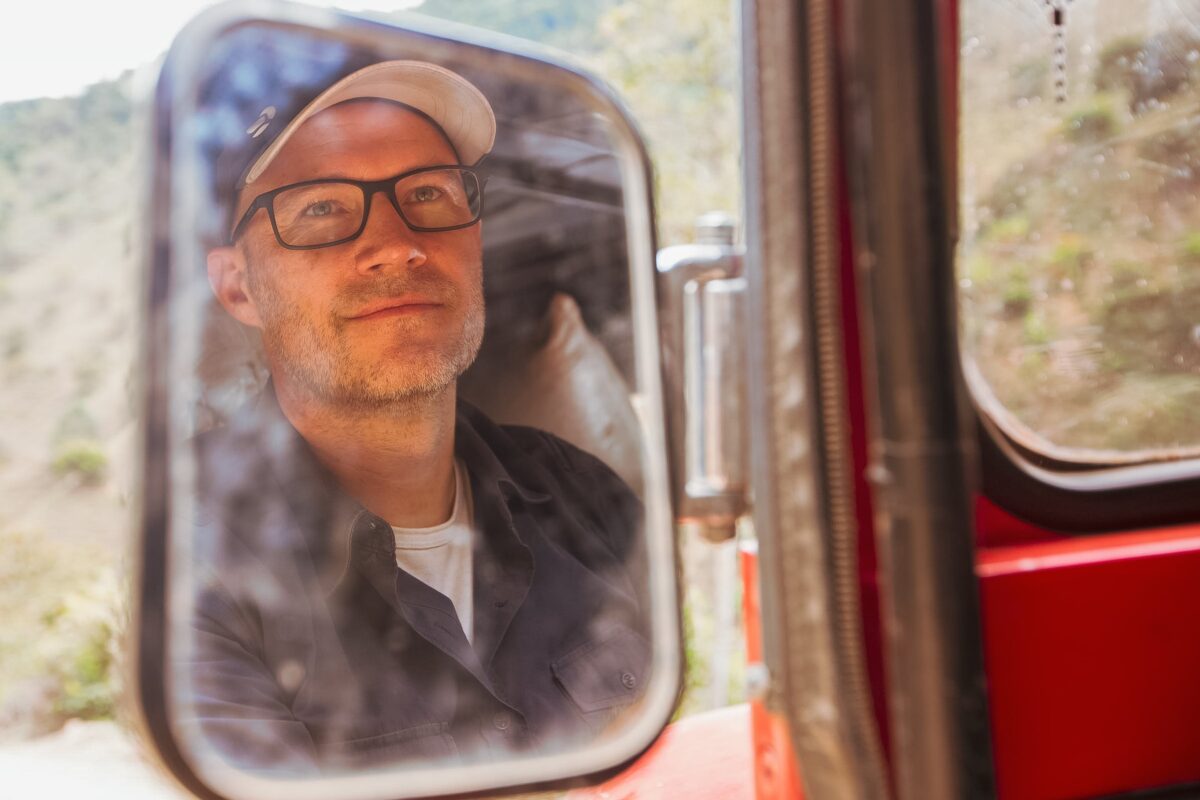
From journalism to the world of specialty coffee
Ronald states, “I started studying journalism because I was interested in foreign cultures and wanted to travel all the time. Working as a photojournalist for twenty years all over the world, I contributed providing photos and articles to European and American magazines. The main theme I worked on was social issues and I have been to war zones several times. Many of the articles focused on how people were living under difficult circumstances. While I was working as a journalist, I was assigned to write a series of articles on climate change for a few years, which sparked my interest in coffee production. Then, about ten years ago, I met a Colombian woman, got married, and relocated to Colombia. It was a fateful turning point in my life.”
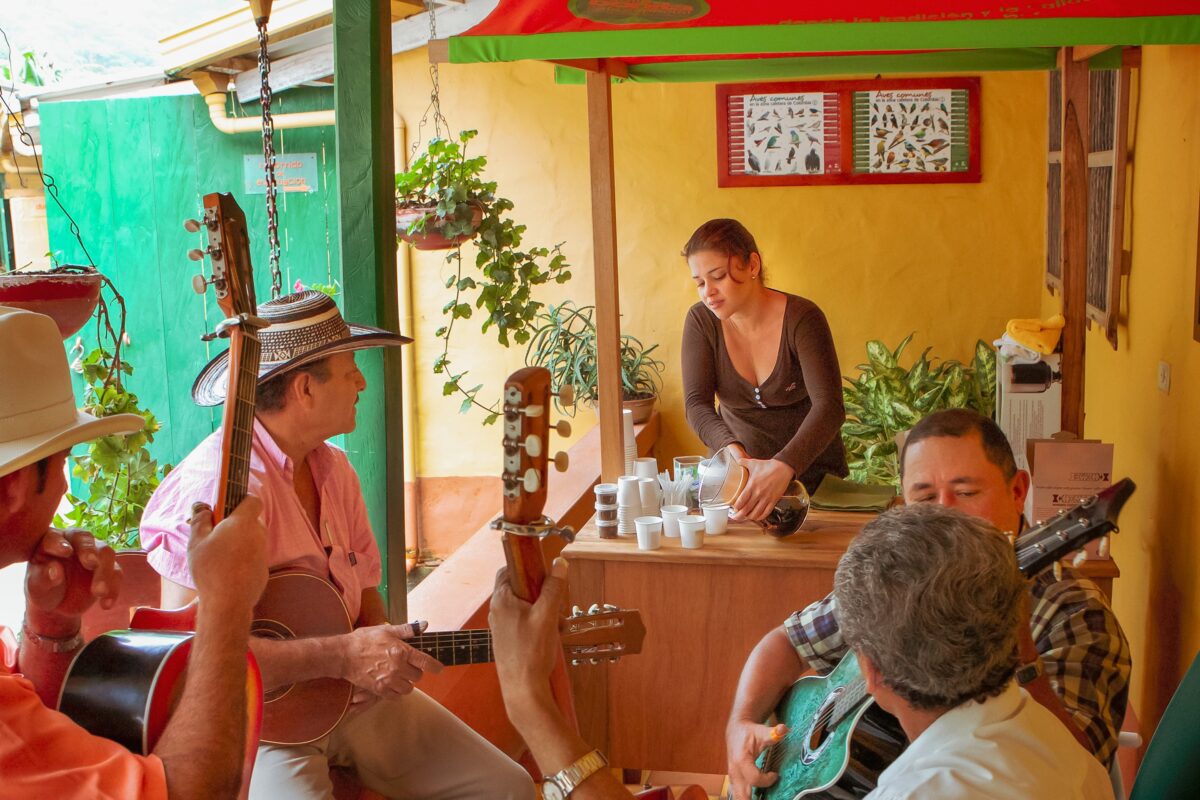
His interest in social issues and his encounter with Colombia eventually led him to a new field for him, the world of coffee.
“When I started living with my family in Colombia, I began to question my previous working style of traveling around the world. I didn’t want to be separated from my family. I increased my work on the articles about Colombia, but all the articles I was asked to write were about the negative aspects of the country such as guerrillas, drug gangs, and violence. Colombia is a very beautiful country and I started to feel tired of reporting only the negative aspects of Colombia because that’s not the only thing happening in Colombia.”
“At the time I was feeling tired of reporting negative aspects about Colombia, I learned about specialty coffee. My wife’s cousin was running a specialty coffee cafe. He gave a presentation about specialty coffee to all his relatives, including me. At that time, people who were engaged in Colombian coffee production were passionate about raising awareness about specialty coffee. This was the time when people had no idea of how high the quality of coffee grown by Colombian producers was yet or what specialty coffee was.”
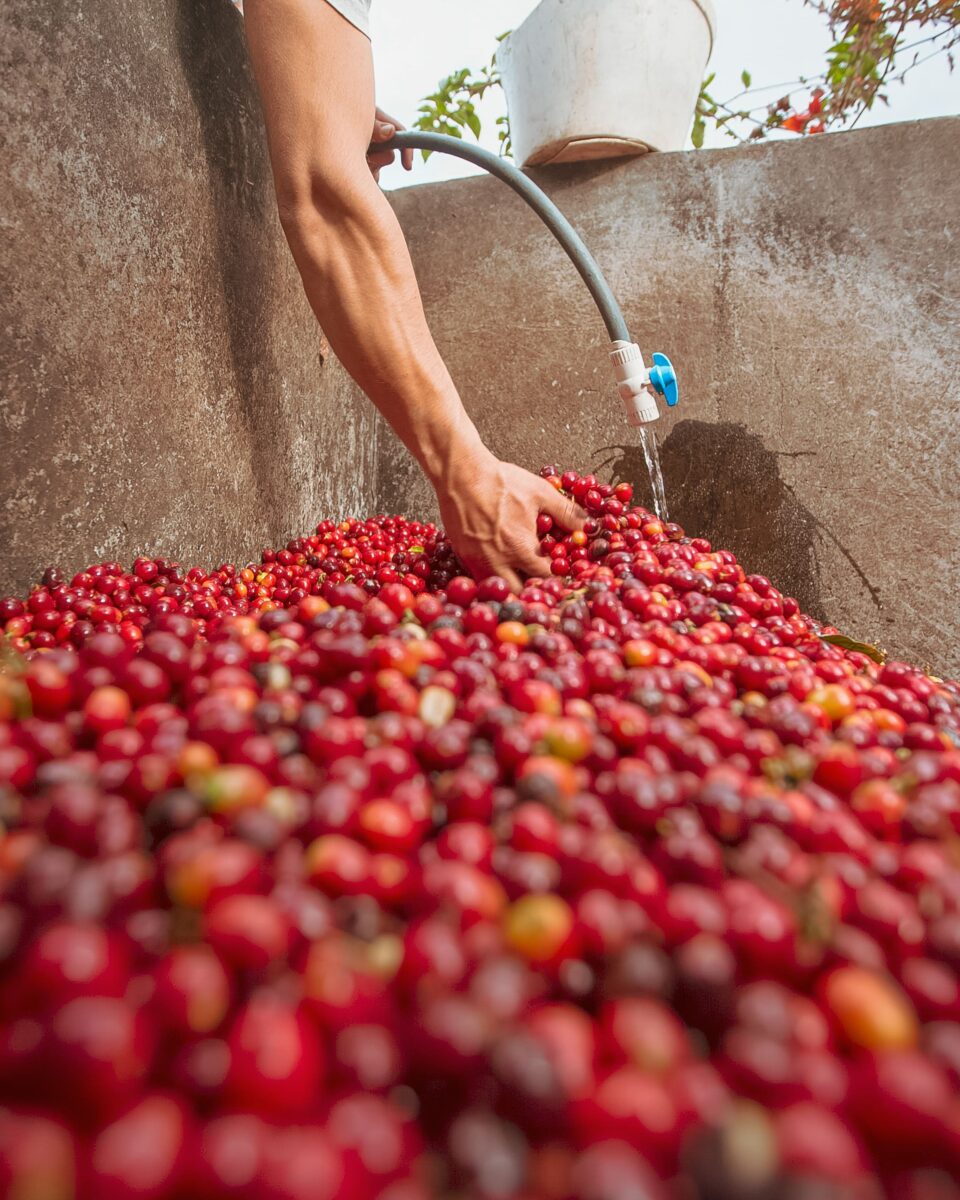
Colombia is currently one of the world’s leading producers of specialty coffee but Colombia used to only trade commodity coffee at international prices. In the midst of this, Ronald was inspired by the budding specialty coffee movement in Colombia and took immediate action.
Ronald states, “I got to know several coffee producers and learned how difficult it was for them to make a living from coffee production. They couldn’t export their coffee due to low international prices, so they sold their coffee only in local markets. I decided to send their roasted green coffee to the Netherlands as a sort of project- like my hobby- and I sold it online. I found a partner roaster in the Netherlands and she roasted green coffee beans in the Netherlands while I ran the website. Once we started selling green coffee, the orders of green coffee she roasted were ten times higher than we expected. This made me realize that there was a huge demand for specialty coffee from Colombia.”
“I decided to start a green coffee business in Colombia and came up with two concepts. The first was that I would be the only person between the coffee producers and the roasters, making the supply chain as short as possible. The second was to focus on high-quality coffee to increase the income of the producers. Both of these concepts are aimed at making the future brighter for the producers.”
This is how Ronald started to fall in love with specialty coffee. Coffee may have given Ronald real feedback that he could not get from journalism.
Ronald states, “To be honest, I haven’t even touched a camera in years, but I never regretted it although I sometimes think I want to travel around the world. I feel very happy being involved in coffee.”

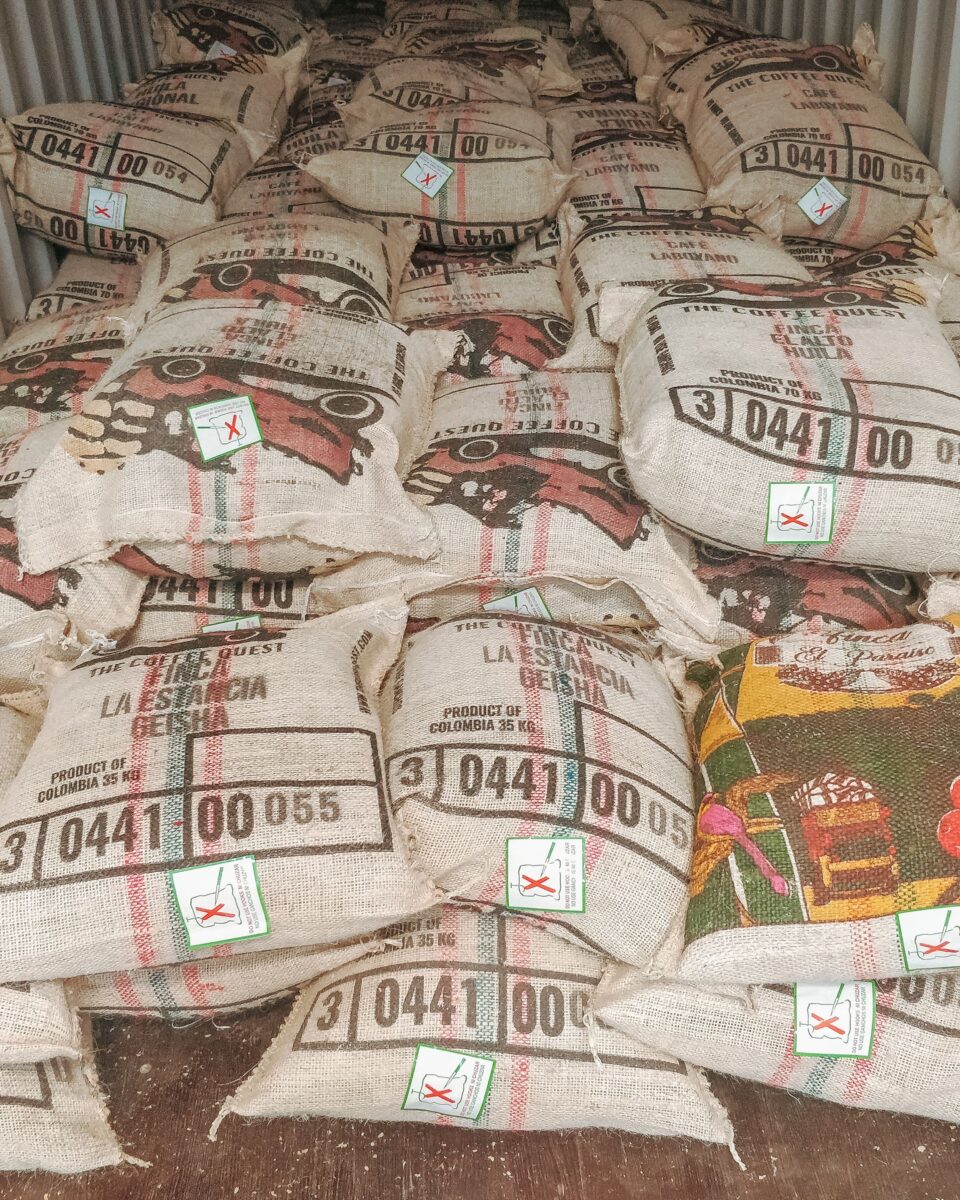
Launch of Coffee Quest
Then a chance encounter happened which accelerated his business.
Ronald states, “A few years had passed since I started the business, and it had grown to a scale that I could not run it by myself. Around that time, I met Stephen and started working with him in Colombia, and we also started exporting coffee to the US and Europe.”
“About five years ago, I met Friso and Michiel at the Amsterdam Coffee Festival. They were also running green coffee businesses. We hit it off and started to cooperate and work together on selling coffee. After a while, we thought that it made more sense to combine everyone’s businesses into one, so we decided to merge the three of our businesses under one business name, Coffee Quest.”
“This merger allowed each of us to grow at a much faster rate, and we have grown to a team of twenty people in the business. If we hadn’t met each other then, none of us would have probably achieved what Coffee Quest is achieving right now.”
The name of the business, Coffee Quest, was taken from Ronald’s business name. What started out as a solo journey turned into an adventure with the help of friends along the way. The dynamism and excitement they felt at the time is something we can relate to. We are feeling exactly that way right now.

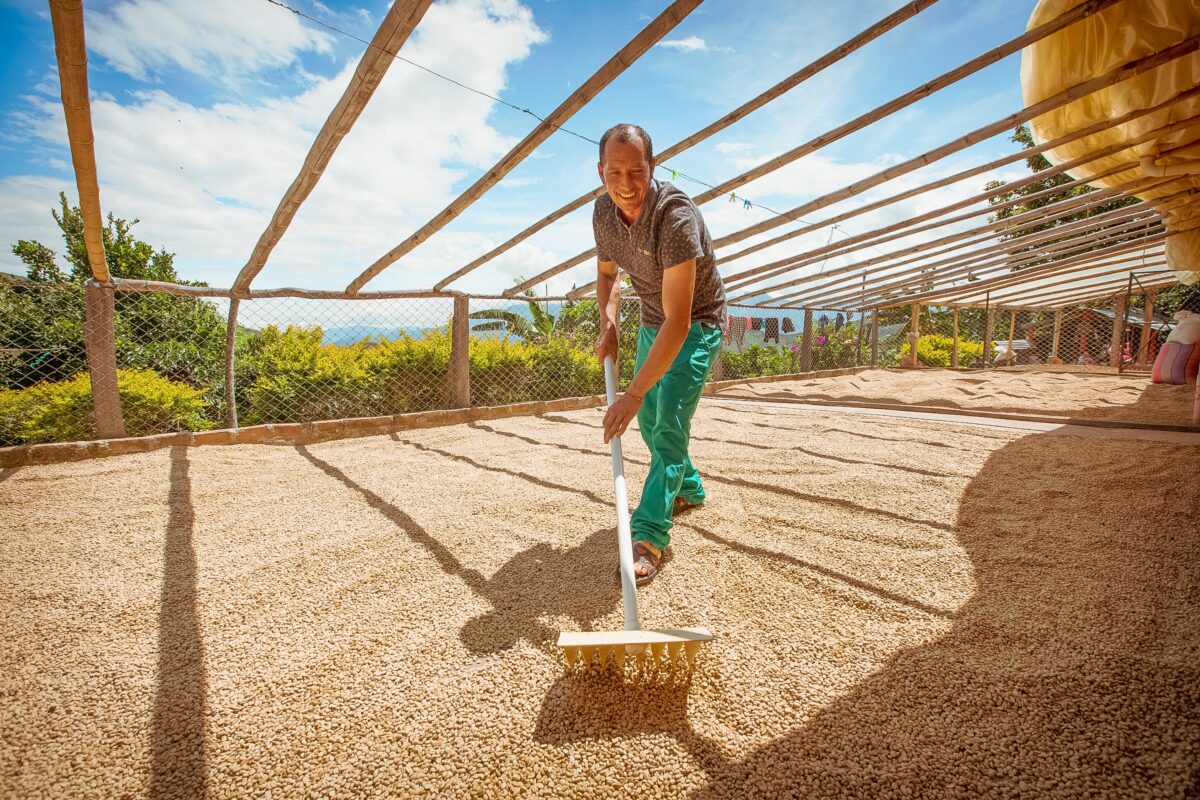
Changes in Colombia as a coffee production country
In the last twenty years, coffee production in Colombia has undergone major changes.
Ronald states, “For decades, the Colombian coffee industry was dominated by the National Federation of Coffee Growers of Colombia and a limited number of large exporters. The market for people other than that limited number of people opened about fifteen years ago, and coffee producers began to have access to obtaining their own export licenses. This change has had allowed many producers to make a living from coffee. Ninety percent of Colombia’s coffee producers are small-scale producers and many of them were living almost under the poverty level, but with the market being open, there was the possibility that they could earn more.”
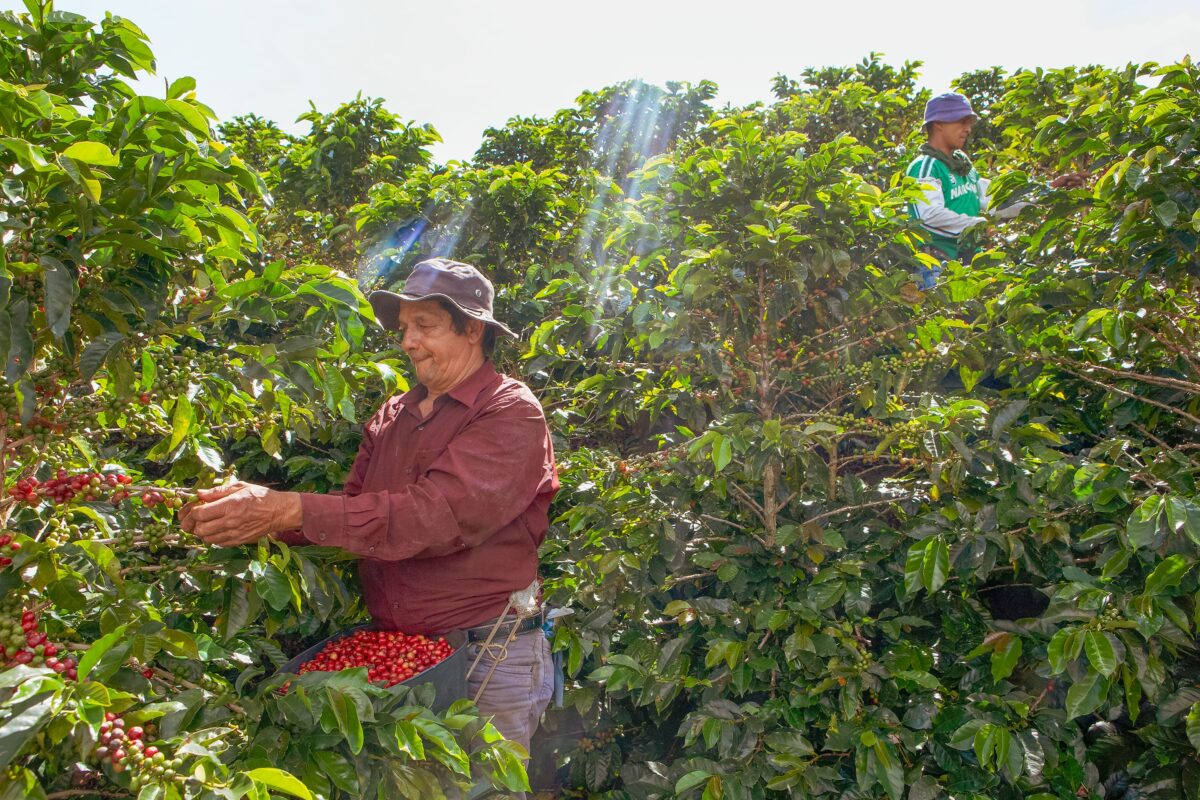
In the future, Colombia’s small-scale producers will be divided into two groups: those who aren’t to adapt to the change and those who are able to adapt to the change with flexibility.
Ronald states, “For example, Brazil’s coffee farms are located on the plains and are more industrialized, so producers can produce coffee at a lower cost than we do in Colombia. Most coffee farms in Colombia are located on steep mountain slopes and harvesting coffee is done by hand, which takes time and effort. Increasing the quality and price of coffee is the only way to make coffee production in Colombia survive in the market. On the other hand, producers who are not motivated to improve quality and just repeat the farming practices of previous generations will have problems in the future.”
There is the reality that even Colombia, which is the world’s third-largest coffee producer, is in danger of losing coffee productions if they aren’t competitive with other countries.
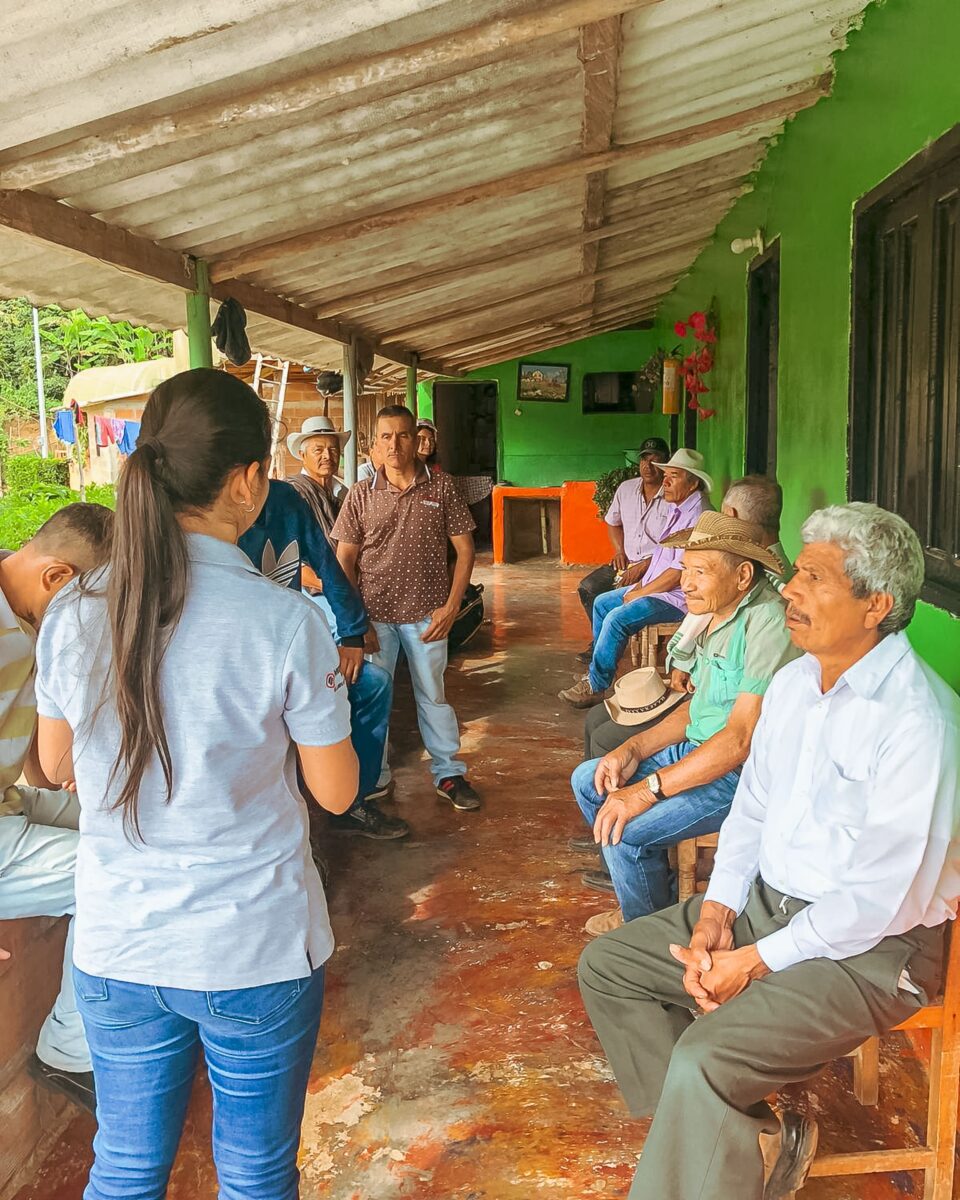
The first coffee buying station
Ronald told us about a memorable episode with a coffee producer.
“About five years ago, a producer called me and said, ‘I am contacting you on behalf of twenty-five other producers. We would love to work with you.’ I said to them, ‘Could you send us a sample? After we cup your coffee, we will get back to you.’ Several days later, the office’s doorbell rang, so I opened the door where I found the producer standing carrying a large bag. He had collected the samples from the producers in his group and traveled fifteen hours by night bus to deliver them to us. What impressed me even more was the quality of the coffees he brought- it was very high and almost all the coffees were scoring over eighty-six points. These coffees were grown by producers in an area that had been isolated by guerrillas for more than fifteen years. The producers had no contact with overseas buyers, and the only way to sell coffee was traveling several hours to the next village and selling it.”
“We established a coffee buying station with the group of producers in the following year. It was our first buying station. Their coffees are not included in our offer list this time because the volume is not stable yet, but their coffee production is very special to me.”
I can imagine there are many more producers like them in Colombia. Giving due recognition to the quality of coffees they grow and bringing them to the world will directly contribute to raising the standard of living for the producers and the sustainability of quality coffee. For roasters and consumers, it will create an even better opportunity to encounter more great coffees. Coffee Quest’s coffee buying house plays a major role in this cycle. There is no doubt that this initiative is the source of Ronald’s passion for specialty coffee.

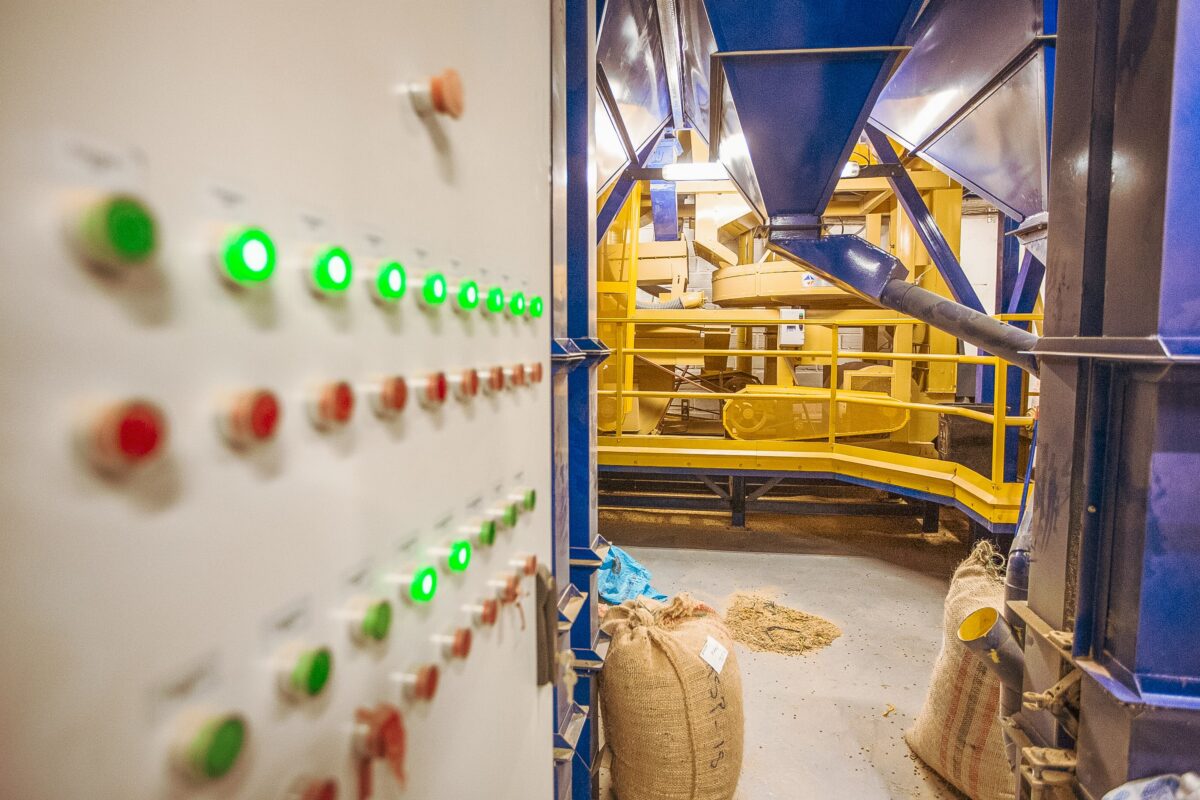
About the future
What would Coffee Quest Colombia want to achieve in the future?
Ronald states, “We want our business model to become the standard in the coffee industry and we are looking into expanding our scale of business to the point where it becomes the norm to pay coffee producers an appropriate and truly rewarding price. We also want to build a washing station where we buy coffee from producers who aren’t very motivated to put in the effort for specialty coffee, process their coffee, and offer it to our customers. We intend to create an environment where we can control various factors such as temperature, humidity, and pH level and develop a reproducible process. The demand for high-quality micro lots from Colombia continues to increase and there is always a shortage of them. Building our own washing station is one way to avoid this problem.”
Ronald faces the vast coffee-producing country of Colombia with sincerity. The world of coffee is changing rapidly and no one can predict what the state of coffee production in Colombia will be like in ten to fifteen years. Coffee Quest’s adventure has only just begun.
Originally written in Japanese by Ayane Yamada